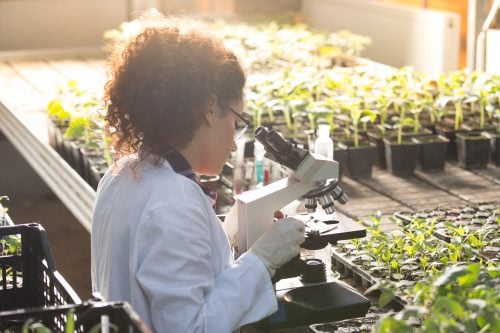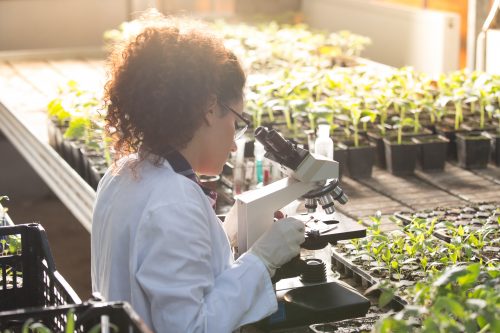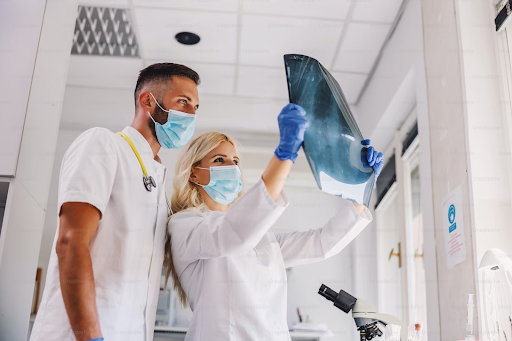
As we venture deeper into the 21st century, the role of science and scientific research has never been more important. From developing new medical advancements to addressing global challenges like climate change, the work of scientists has a direct impact on the world around us. However, becoming a successful scientist entails more than just book smarts and academic achievements.
So what makes a good scientist? Here are a few habits and practices to consider:
Always Remain Curious and Ask Questions
Curiosity is what drives scientists to seek out new knowledge and develop a deeper understanding of the world around us. By continually asking questions and seeking answers, scientists can uncover new insights and generate new ideas that can lead to breakthrough discoveries. It not only helps you develop a better understanding of the subject you are working on, but it also helps you identify potential problems which you might otherwise miss. Therefore, fostering a curious mindset and constantly asking questions is essential for any scientist who wants to excel in their field.
Remain Organized and Plan Ahead
Remaining organized can be a daunting task, especially when experiments become complex and the data collected is large. However, staying organized can save significant amounts of time and provide clarity when analyzing data. A good practice is to develop a system for cataloging data and results in a consistent and standardized manner.
Planning ahead is also crucial for a successful scientific career. By setting achievable goals and creating a timeline for experiments, one can avoid procrastination and ensure the timely completion of the research. This habit also applies to maintaining a clean and orderly workspace to increase efficiency and reduce distractions.
Develop an Understanding of the Scientific Process
It involves the ability to ask questions, design experiments, collect and analyze data, and draw valid conclusions based on evidence. Understanding the scientific process involves a systematic and disciplined approach to solving problems or answering research questions. Scientists must be able to identify, evaluate, and communicate scientific findings effectively.
They must also be able to critically evaluate and interpret data while remaining open to new perspectives and ideas. A good scientist must be able to demonstrate rigorous and ethical research practices, which include transparency, honesty, and accountability. In order to develop an understanding of the scientific process, a good scientist must actively engage in research and be willing to collaborate with other scientists from diverse backgrounds and disciplines.
Be Open to Feedback and Constructive Criticism
Being open to feedback and constructive criticism is a key habit for any scientist who seeks to constantly improve and grow in their field. It involves being willing to listen to others’ opinions, even if they differ from your own, and actively seeking out feedback on your work. To do this, one should cultivate a growth mindset, where obstacles and failures are seen as opportunities for learning rather than insurmountable barriers.
Constructive feedback can provide valuable insights and perspectives that may lead to breakthroughs in your research or identify areas for improvement in your approach. Being open to feedback requires a certain level of vulnerability and a willingness to acknowledge your limitations, but it can ultimately lead to greater success and progress in your scientific endeavors.
Utilize Reliable Sources When Researching
One foundational habit of becoming a good scientist is utilizing reliable sources when researching. In order to produce accurate and trustworthy research, it is essential to collect information from credible sources that have established their authority in the field. This could include peer-reviewed journals, academic sources, and expert opinions from qualified professionals. Relying solely on popular media or unverified sources can lead to inaccurate or biased conclusions, which can negatively impact the integrity of your research.
As a scientist, it is your responsibility to ensure that the sources you are using have been thoroughly vetted and are reputable. By incorporating this habit into your research practice, you can enhance the reliability and credibility of your work.
Pay Attention to the Detail
Good scientists should always be meticulous in their work, and strive for precision in every step of their research. Paying attention to the small details can mean the difference between obtaining valid, reproducible data and having to redo an entire experiment. Careful note-taking, thorough documentation, and precise experimentation are all essential components of the scientific process.
By being attentive to the details, scientists can identify potential sources of error and take appropriate measures to mitigate them, ensuring that their findings are accurate and reliable. Whether it be in the lab, in data analysis, or in scientific communication, attention to detail is a crucial habit that every good scientist must develop and maintain.
Take Initiative and Be Proactive
Taking initiative and being proactive are critical habits for becoming a good scientist. Rather than waiting for direction or orders, proactive individuals know how to identify gaps, problems, and opportunities, and strive to address them without being prompted or told what to do. This habit involves taking ownership of your work, asking questions, seeking feedback, and making suggestions to improve processes and methodologies.
By being proactive, you demonstrate confidence, assertiveness, and a willingness to take risks, which are all essential qualities of successful scientists. Being proactive can also help cultivate a sense of accountability and dependability, as you show others that you take your role seriously and are always looking for ways to contribute to the team’s goals.
Minimize Distractions and Stay Focused
One of the key habits that can help you in this journey is minimizing distractions and staying focused. Distractions can come in many forms and can hinder your ability to concentrate and achieve your objectives. To minimize distractions, it is important to create a dedicated workspace that is free from distractions such as social media, email, or phone notifications. Setting specific times to check these notifications during your workday can also help to prevent distraction.
Furthermore, breaking your work into manageable tasks and setting clear goals can help increase focus and productivity. By minimizing distractions and staying focused, you can improve the quality of your work and become a more accomplished scientist.
Conclusion
Becoming a good scientist requires a combination of habits and practices that foster growth, curiosity, and a commitment to scientific inquiry. By cultivating strong critical thinking skills, continuously learning, embracing failure, following ethical guidelines, and collaborating with others, scientists can approach research with rigor and creativity. These habits and practices are essential not only for scientific success but also for advancing knowledge and addressing pressing global challenges. Ultimately, the dedication to the scientific method and the pursuit of new knowledge should remain at the heart of all scientific endeavors.
Interesting Related Article: “Chief Science Officer- Definition and Career Path“








